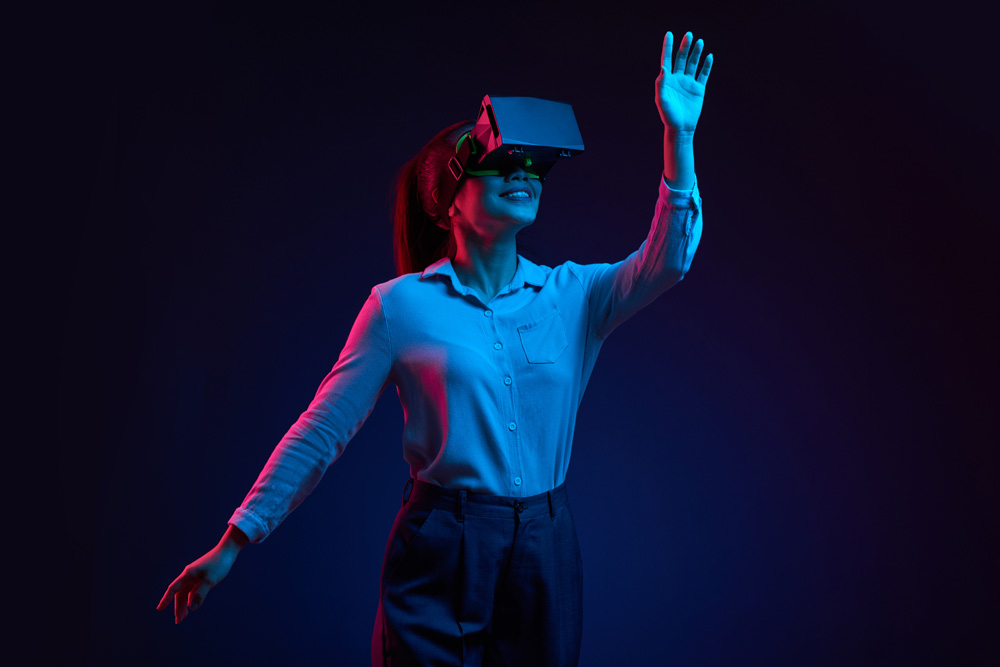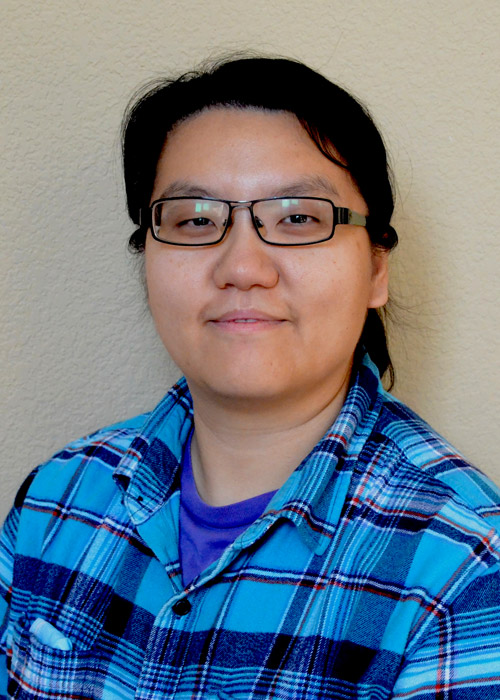Study Shows Benefits of Virtual Reality in Measuring Memory
By: Stephen Fontenot | April 9, 2021

In a new study, researchers from The University of Texas at Dallas have demonstrated the advantages of using virtual reality to measure how people handle tasks that tax their memory and to assess the strategies people use to make each task easier.
Dr. Daniel Krawczyk, professor of psychology and holder of the Debbie and Jim Francis Chair in the School of Behavioral and Brain Sciences, is the senior author of the study published in the August-December 2020 issue of the journal Computers in Human Behavior Reports. The research evaluated how participants compiled increasingly difficult grocery lists from recipes by eliminating ingredients already “on hand” in virtual kitchen cabinets.
“This work fills a gap in our field. Some researchers are beginning to simulate the reality of a particular everyday task or job training scenario with VR [virtual reality],” said Krawczyk, who is also deputy director of the UT Dallas Center for BrainHealth. “On the other end of the spectrum, researchers are interested in this very controlled type of memory task. Our study fits in between, because it’s realistic and relevant to daily life, but it’s also sufficiently controlled as a scientific study should be, with careful elevation of cognitive demand. So we’re able to learn about working memory as well as daily life.”

“Some researchers are beginning to simulate the reality of a particular everyday task or job training scenario with VR [virtual reality]. On the other end of the spectrum, researchers are interested in this very controlled type of memory task. Our study fits in between.”
Dr. Daniel Krawczyk, professor of psychology and holder of the Debbie and Jim Francis Chair in the School of Behavioral and Brain Sciences
Psychological sciences doctoral student Zhengsi Chang, the corresponding author of the study, described the advantages of the study’s method, in which 42 healthy college students memorized ingredients from a recipe list, searched the virtual kitchen to see which ingredients they already possessed, then removed those items from their mental grocery list.
“VR creates a real sweet spot for us,” she said. “We can generalize findings from this research into many situations in people’s daily activities. At the same time, we maintained a high degree of control over experiment design, replicating real circumstances more accurately than is usually possible otherwise. We can re-create whatever scenario is needed.”
Several novel aspects of the study show how virtual reality can simplify researchers’ efforts while providing data in a better format. Among these was the ease with which VR allows alteration of the difficulty level of an experiment, changing the “functional load” the brain has to handle.
“Instead of just having a VR-based task at one level of difficulty, there are actually three different levels that we increase as we go,” Chang said. “This is quite rare for this kind of study and allows more efficient data gathering.”
The simplicity of recording each test iteration also provided a path to faster accumulation of a wider set of data points.

“Instead of just having a VR-based task at one level of difficulty, there are actually three different levels that we increase as we go. This is quite rare for this kind of study and allows more efficient data gathering.”
Zhengsi Chang, psychological sciences doctoral student and corresponding author of the study
“We obtained both a quantitative analysis — how much time a subject took, how many errors were made, and so on — and a close look at the participants’ processes, their tactics in completing the task,” Chang said. “Knowing what they did in what sequence provides a better understanding of how they adapt to increasing difficulties and how they overcome memory challenges. It really enriched our understanding of their functional performance.”
Krawczyk said it was important to observe the range of methods that participants use on the same task, as well as how individual participants changed strategies as the task became harder.
“In a daily life context, strategy makes such a difference. If you enter into a task prepared with a plan, you will get the most out of your brain and see much better performance,” he said. “Indeed, how someone approaches a task and makes it efficient may be more important to their performance than their raw ability to maintain information in memory.”
Krawczyk said that the work highlights the unique characteristics of functional assessment via VR and that it could lead to more researchers following this path.
“VR-based functional tasks are still fairly new in the field,” he said. “Virtual reality comes closer to simulating real-life performance than performing these tests in a lab.”
Dr. Brandon Pires BS’17, a family medicine resident at Texas Tech University Health Sciences Center, also contributed to the research.
Media Contact:
Stephen Fontenot, UT Dallas, 972-883-4405, stephen.fontenot@utdallas.edu, or the Office of Media Relations, UT Dallas, (972) 883-2155, newscenter@utdallas.edu.





